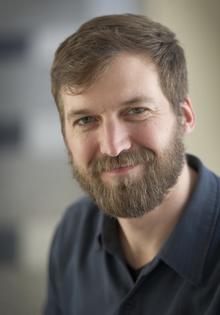
There’s a new kind of student in town, and for Waterloo physics professor, Roger Melko, this student has the potential to spark a revolution in the world of quantum computing.
Artificial Intelligence and machine learning is already well established in our every day world thanks to the contributions of physics towards the creation of complex neural networks. Computers are taught by a machine learning algorithm how to recognize speech patterns, photos of people and objects, and even to decipher hand written cheques that make our banking lives easier. But for Dr. Melko and his research group, the vision for machine learning, or Software 2.0, has taken a U-turn on to itself: using the industry standard of artificial intelligence to study physics research.
According to Melko, a University of Waterloo physics professor and Canada Research Chair in Computational Many-Body Physics and associate faculty member at Perimeter Institute of Theoretical Physics, his group has been exploring the use of algorithms for classifying data sets that could come from condensed matter physics, both theoretical and experimental. With an encouraging amount of success they have been exploring the use of machine learning for studying the properties of strongly-correlated quantum particles- which has application both in condensed matter as well as quantum information/computing. “Machine learning is the idea that, instead of explicitly designing deterministic algorithms for computers,” he explains, “we can program computers instead with the ability to learn and change by being exposed to data”.
His research has become a springboard for many other techniques for experimental research in quantum states and how these neural networks might store and ultimately learn from this data. Melko is quite enthusiastic about the future of artificial intelligence as machine learning techniques are rapidly becoming more and more important for the design and fabrication of quantum computers.
The Faculty of Science is proud to have Roger Melko as the only expert panellist from the University of Waterloo at this year’s True North conference which features Canada’s leading experts in technical innovation.
True North 2019 Speaking Session:
Rethinking
Quantum
Industrialization
Wednesday,
June
19@
11:55
a.m.
The development of our present-day computers was driven by the industrialization of semiconductor technology on a global scale. Now, in order to make the leap from small qubit arrays to full-blown digital quantum computers, a similar regime of incentives is required to massively scale quantum research and development.
With recent advances hybridizing artificial intelligence with present-day quantum devices, the Waterloo-Toronto corridor is fast becoming the worldwide center of this endeavour. Roger Melko will discuss possible roles for academia, industry and government in the industrialization of quantum computers.
For more information about the True North 2019 conference, including where to catch Dr. Melko’s session, please visit https://truenorthwaterloo.com/